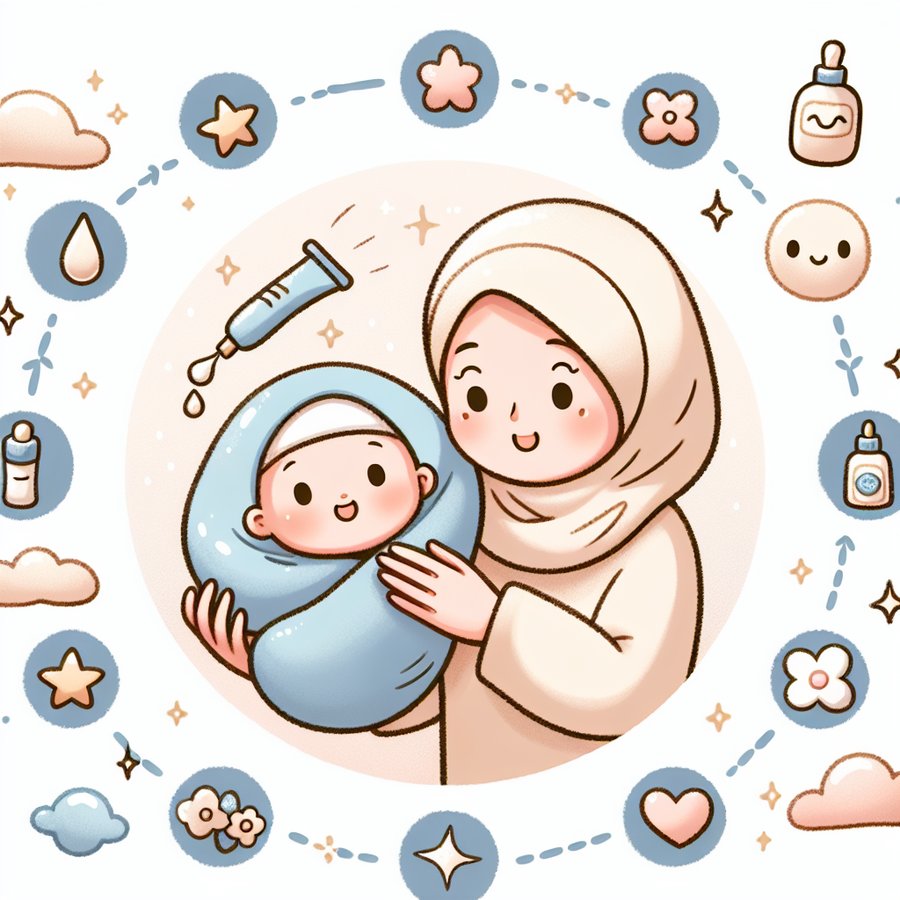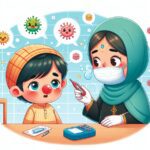Addressing eczema in babies: Treatment and care tips is essential for new parents dealing with this common skin condition. Eczema, or atopic dermatitis, affects many infants, causing dry, itchy, and sometimes painful skin. This article aims to provide a comprehensive guide to help parents understand and manage eczema in their babies, ensuring they remain comfortable and happy.
Understanding Eczema in Infants
Eczema is a skin condition that usually appears in early infancy and is characterized by red, inflamed, and itchy skin patches. While the exact cause of eczema is unknown, it is believed to be linked to genetic and environmental factors. Addressing eczema in babies: Treatment and care tips can significantly improve the condition and provide relief to your little one.
It’s important to recognize the symptoms of eczema early on. Common signs include dry, scaly skin, redness, and itchiness, which can lead to discomfort and disrupted sleep patterns. If you suspect your baby may have eczema, consulting with a pediatrician is the first step toward diagnosis and treatment. For more details on managing eczema in infants, consider reading managing eczema in infants: skincare routines to soothe irritation.
Addressing eczema in babies: Treatment and care tips
Once a diagnosis of eczema is confirmed, the focus shifts to treatment and ongoing care to ease your baby’s symptoms. Addressing eczema in babies: Treatment and care tips include both medical treatments and home care strategies. Topical corticosteroids are commonly prescribed to reduce inflammation and itching. However, it’s crucial to use them as directed by a healthcare professional to avoid potential side effects.
Home care plays a significant role in managing eczema. Keeping your baby’s skin moisturized is key. Use hypoallergenic, fragrance-free moisturizers several times a day, especially after bathing, to lock in moisture. Bath time should be short and with lukewarm water to prevent skin from drying out. Additionally, choosing soft, breathable clothing can help reduce skin irritation. For further insight into selecting safe products for your baby, read choosing baby skincare products: chemicals to avoid.
Preventive Measures and Lifestyle Adjustments
Besides treatment, implementing preventive measures can minimize eczema flare-ups. Identifying and avoiding triggers, such as certain fabrics, soaps, and detergents, is essential. A humidifier in your baby’s room can also maintain optimal humidity levels, preventing dry skin. Adequate hydration and a balanced diet can support skin health from the inside out. Understanding and addressing these factors can significantly improve your baby’s quality of life.
Moreover, establishing a regular skincare routine is vital. Gently cleansing your baby’s skin with mild, fragrance-free cleansers and applying moisturizer can prevent flare-ups. Remember, every baby’s skin is different, so it may take time to find the right products and routines that work best. For more tips on baby skincare, check out safe sleep practices to reduce the risk of SIDS and best baby monitors for peace of mind while your baby sleeps.
Addressing eczema in babies: Treatment and care tips are crucial for managing this condition effectively. By understanding the causes, recognizing the symptoms, and implementing the right treatment and care strategies, parents can help soothe their baby’s eczema and improve their overall well-being. Remember, consistently following these guidelines and consulting with healthcare professionals when necessary is key to managing your baby’s eczema successfully.
For parents looking for more information on baby health and wellness, including addressing eczema in babies: Treatment and care tips, consider exploring the comprehensive resources available at Baby Whys and Hows. This platform offers a wealth of information to support you and your baby every step of the way.













